At the commencement of our first volunteer program of the year, six volunteers stepped out of their comfort zones and headed into the Orang Asli villages to help out in our food farming project. After the first day on the field, some felt as if they didn’t have the mental and physical strength to go on, however, they kept pushing to complete their tasks because they knew the impact they were creating for the Orang Asli communities which they were engaging with.
“The main challenge was myself. Every time I went to the grounds, I fought with my own emotion and energy but we kept going until our tasks were completed.”
MoKA
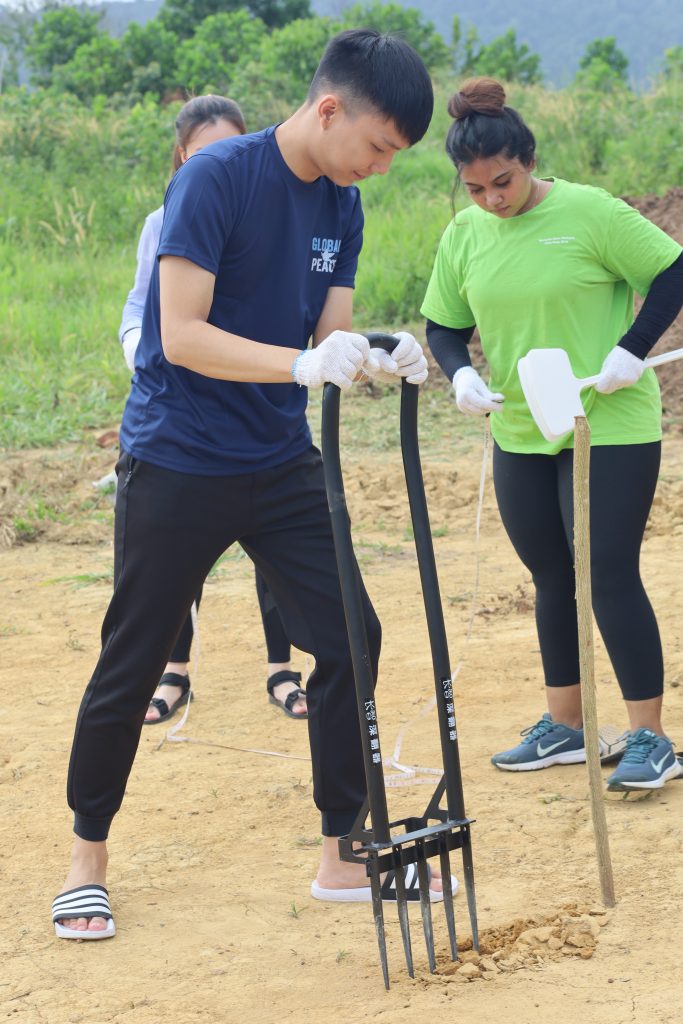
“Initially when we started the tasks, it wasn’t easy at all. It required learning all the steps and we needed to be strong mentally as well.”
Yan Cheng
The Syntropic Agroforestry farming method that Global Peace has introduced to the OA farmers is a useful way to utilise degraded land to create a productive working farm but not without its challenges – especially for older farmers or those without additional help. The initial stage of land preparation, in specific, requires more time and manpower.
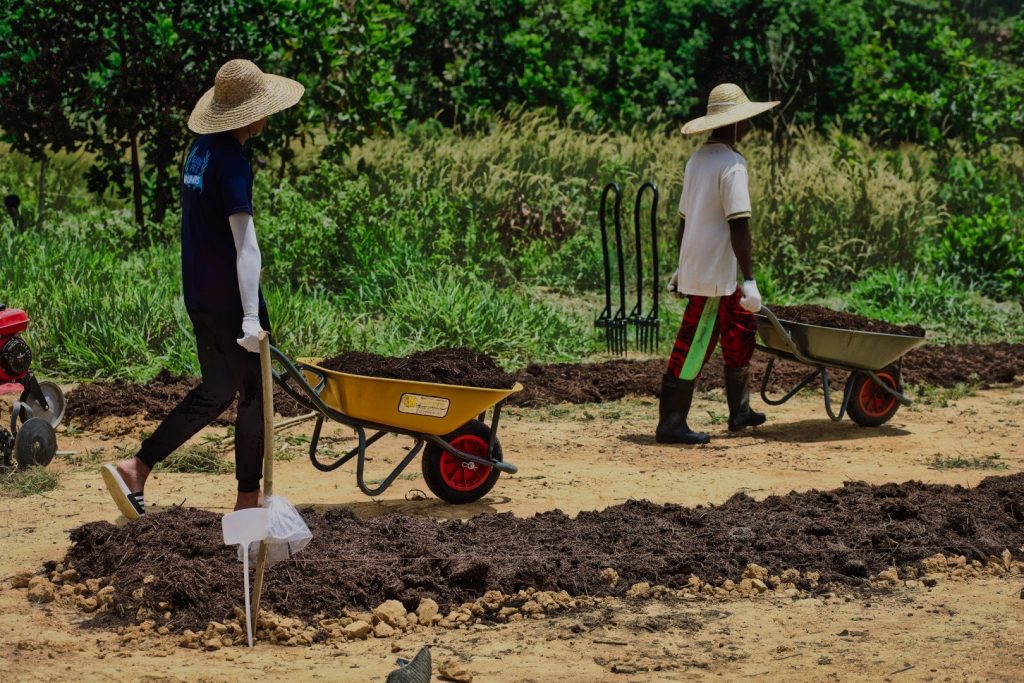
This volunteer program was organised to aid such disadvantaged farmers and to quicken their farming initiatives and to give them motivation to carry on independently. Pak Apu, one of the OA farmers from Kg. Patah Pisau, tells us that he is not well enough to do other jobs so his only way of ensuring there is food on the table for his family is by food farming. However, as of late the farming process has started to become difficult due to his health conditions.
“I’m very interested in the farming project as I know there are many benefits to it, but I feel helpless as my body can’t take it. It requires a lot of time in the sun, that’s why I can’t do it for long hours.”
Pak Apu, Kg. Patah Pisau

The volunteers were briefed thoroughly on the principles of Syntropic Agroforestry as well as its methods and process. Some were so impressed by this farming method that they told the team that they were going to start food farming at home with their families.
“The SA method has changed my perspective completely – although it seemed difficult at first, i have now come to realise that it’s a very useful method with a long-term impact.”
Aaron
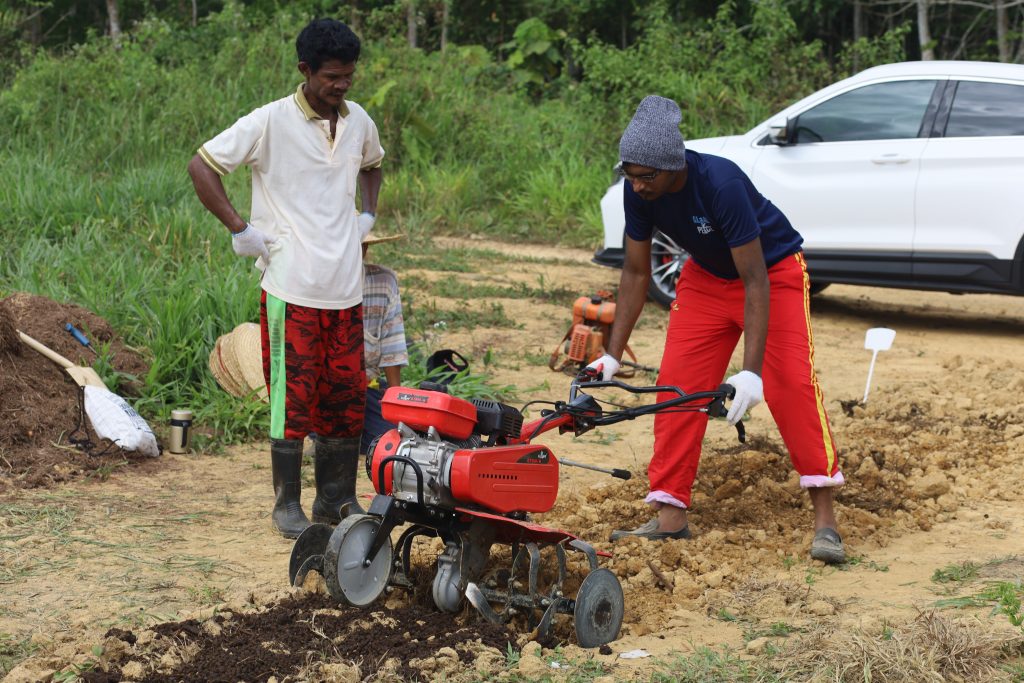
“Syntropic Agroforestry needs more awareness for sure. After seeing Pak Jeleta’s harvests, I now know that this method works. I’m looking forward to seeing the results of our planting!”
Yan Cheng
“Learning about Syntropic Agroforestry has opened my eyes to a different side to farming altogether.”
Kee Kiat
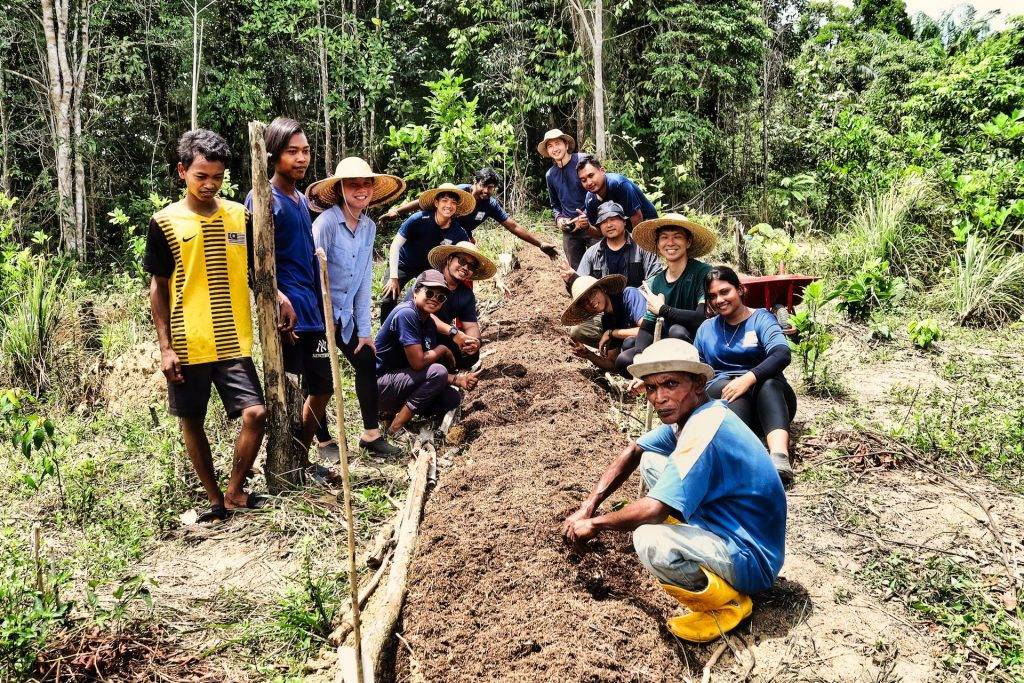
Apart from spending time on the ground, the volunteers had the opportunity to learn how to prepare seedlings and do nursery work. After that, they are then taken back to the farm plot of the day to begin the planting process in which they became experts in no time.
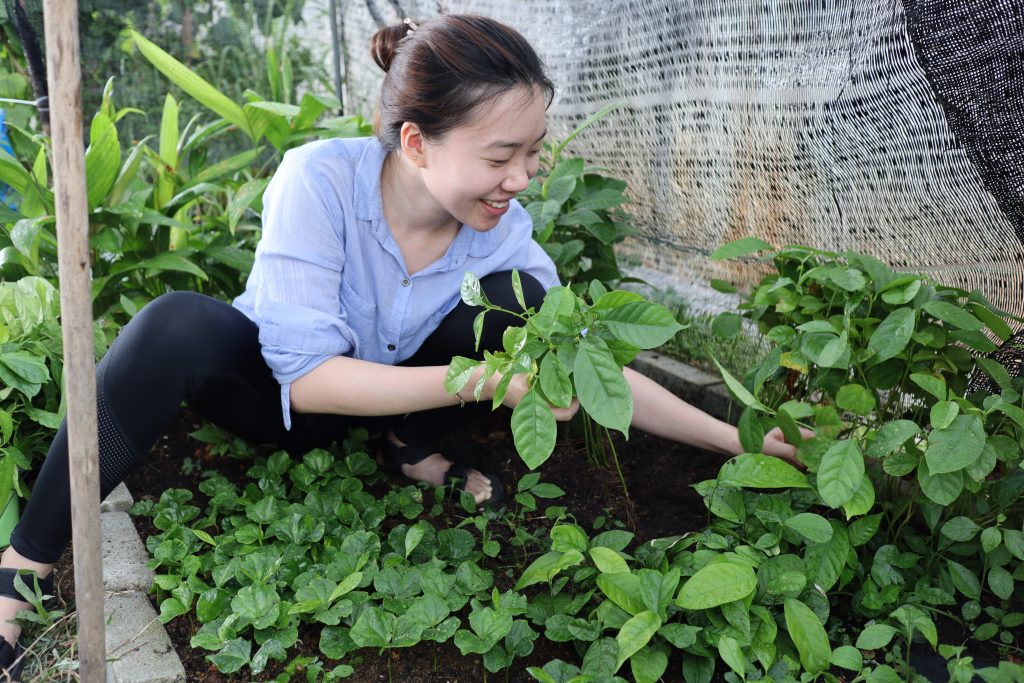
Some afternoons were spent a little differently whereby the volunteers got the chance to help with other projects such as painting washrooms and conducting activities for the Mobile School students – which they absolutely enjoyed!
“It was good that we had a range of activities in between the main one, it kept us energised for the next activity and I learnt so many new things in one week.”
Luannie
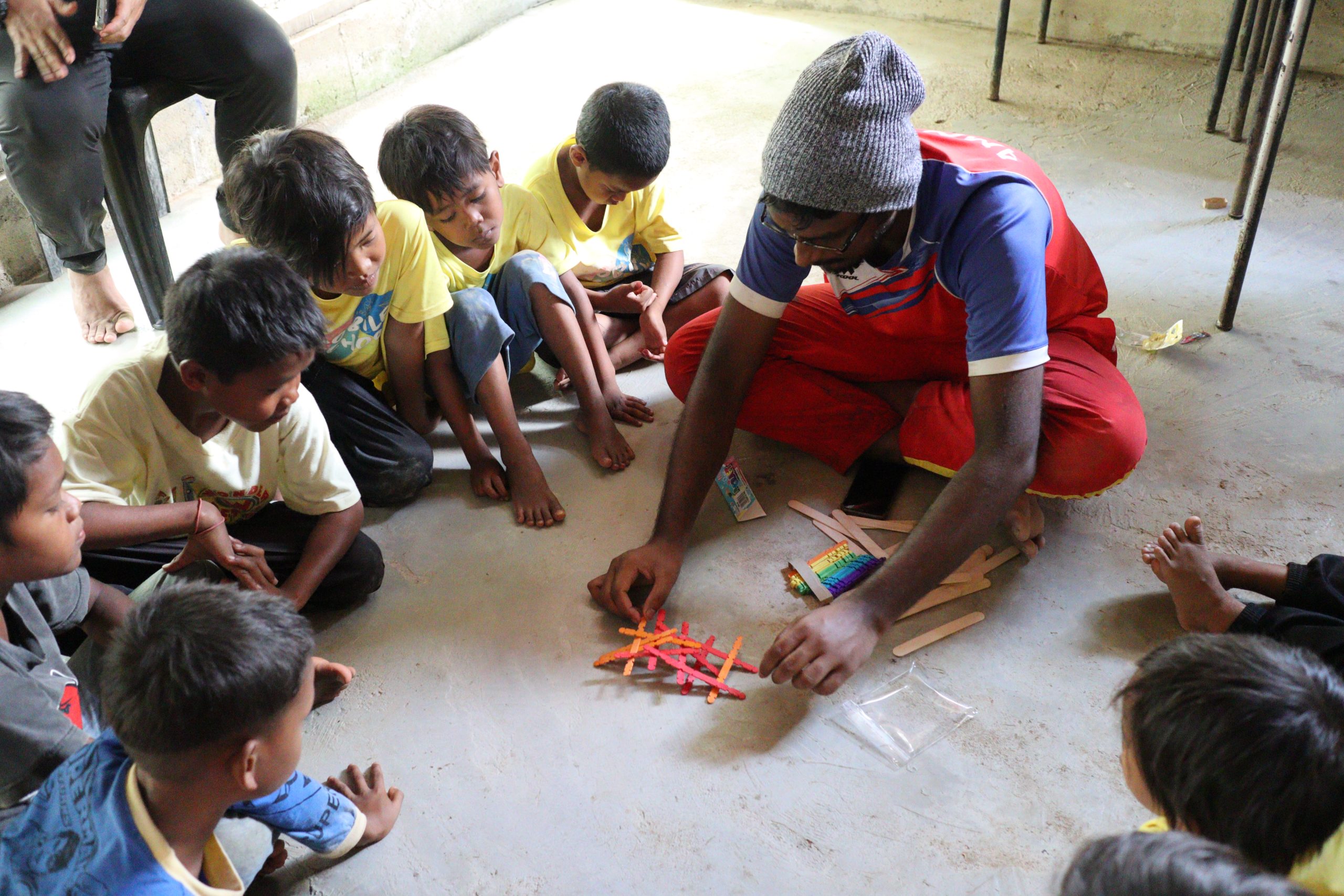
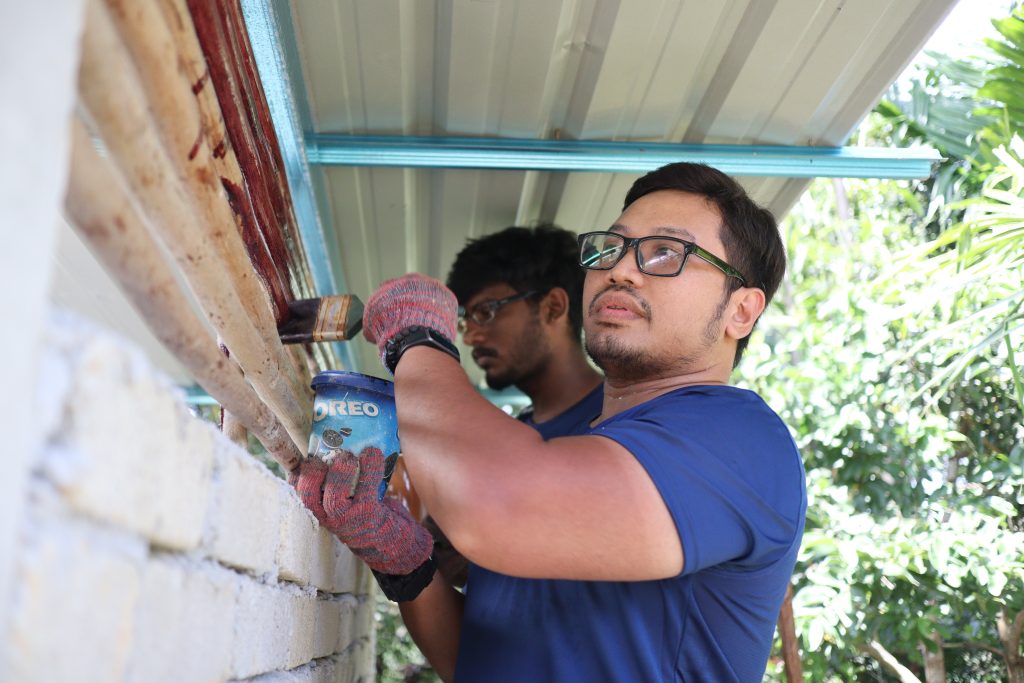
Towards the end of the program, the volunteers had a once-in-a lifetime chance of camping out in an Orang Asli village – barbecuing out in the open, sleeping underneath the full moon and gathering their own breakfast from the forest.
“We got to learn how to live and adapt to the surrounding, using simply what is around us and nothing more – knowing it’s possible to live this way is very satisfying.”
Luannie
What may simply sound like a week-long volunteering program to service the needs of the community is, in reality, more of a win-win situation, benefiting both the individual and the Orang Asli. Having such an amazing group of helping hands has definitely created an impact in the communities we work with, making sure the seeds of hope sprout in time to come.
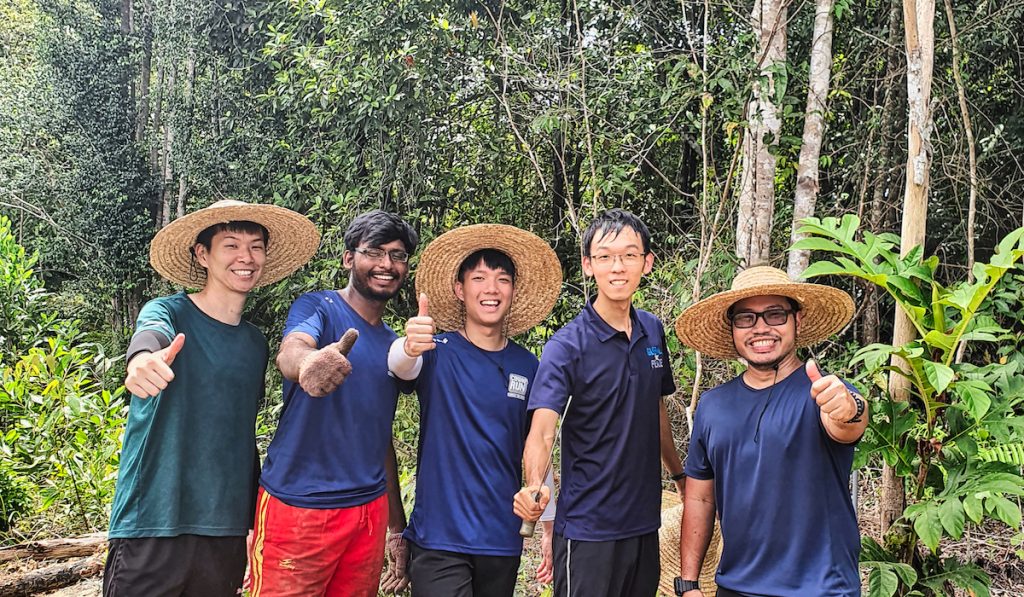
“Although the mission of the volunteer program is to empower OA farmers, it really also empowered ourselves!”
MoKA
“I now know my strength and how far I can push myself in order to accomplish something.”
Khovarthna
“This experience exceeded my expectations!”
Kee Kiat






